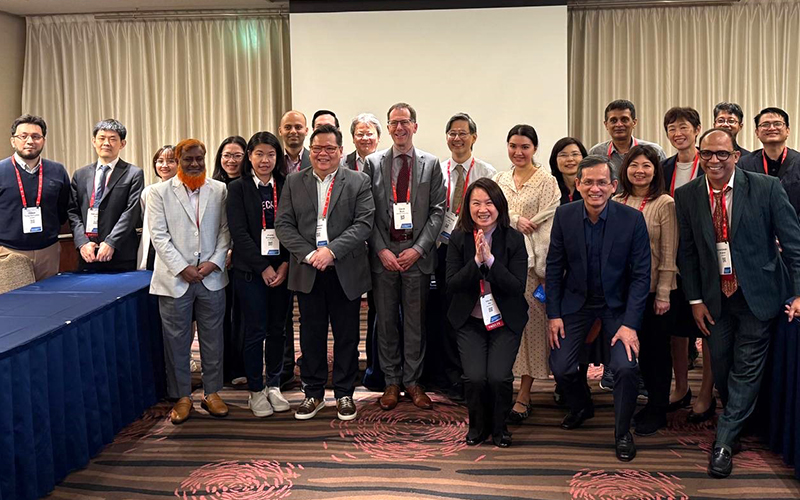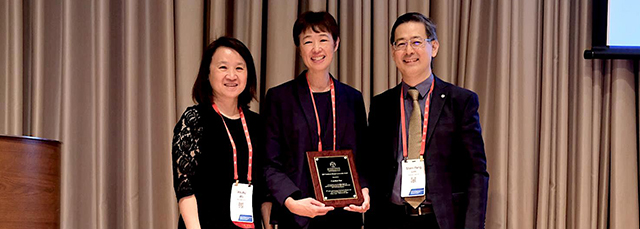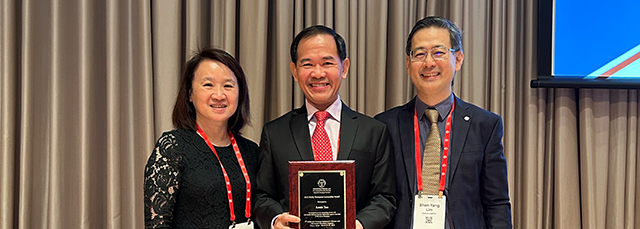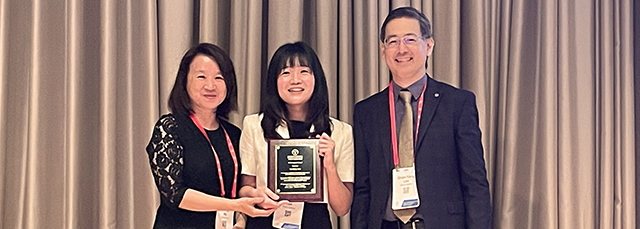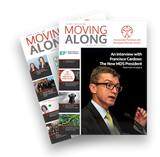
Moving Along newsletter
June 2025 Vol. 29, Issue 2
MDS's quarterly newsletter, providing up-to-date information on new developments in the field of Movement Disorders, as well as MDS announcements and other news.
International Congress of Parkinson’s Disease and Movement Disorders®
|
President’s Letter
|

From the AOPMC
800+ participants join successful AOPMC in Tokyo
Standout program included a Squid Games-themed tournament, retirement honors, and special events.

AOPMC awards
Yoshikuni Mizuno Lectureship Award Neuroprotection for Parkinson’s disease: Clues from the clinic
Could alternative mitophagic pathways have the potential to restore mitochondrial function?
Philip Thompson Lectureship Award Factors influencing long-term course of Parkinson’s disease
Longitudinal study demonstrates non-linear progression of motor symptoms.
Junior Awardee Interrogating LRRK2 kinase activity in monocytes derived from patients carrying the Asian LRRK2, G2385R, and R1628P variants
One gene variant was associated with significantly increased kinase activity in biosamples banked from patients with Parkinson’s disease.
Junior Awardee Disrupted amygdala functional connectivity is mediated by the nucleus basalis of Meynert in Parkinson’s disease patients with hallucinations
“Double hit” of interactions between multiple pathologically affected circuits may predispose individuals to hallucinating.

Features
Classification of GBA1 Variants: MDSGene Systematic Review
Review of literature highlights need to distinguish “severe” or “mild” GBA1 variants in relation to their influence on PD progression, symptoms, and treatment responses.
Patient-completed tool validated for PD non-motor symptom severity
Patients can complete the new, shorter MDS-NMS-Q without a rater, or even remotely.
Digital outcomes as biomarkers of disease progression in early Parkinson’s disease: A systematic review
Digital health technologies show potential for detecting subtle clinical changes in PD.
How heat and climate can affect people with Parkinson’s
Paper author discusses the day-to-day and broader impacts of climate change, and how providers can proactively protect patients.

Young member research highlights
Advancing Parkinson's disease research in Africa: A strategic training framework of the Global Parkinson's Genetics Program (GP2)
GP2’s collaborative research, training, and capacity-building initiatives aim to address knowledge gap in the region.
Changes in action tremor in Parkinson's disease over time: Clinical and neuroimaging correlates
Widespread diffuse brain atrophy may disrupt processes involved in tremor generation, thus reducing action tremor as PD progresses.
Mitochondrial DNA copy number as a potential biomarker for the severity of motor symptoms and prognosis in Parkinson's disease
The number of mitochondrial DNA copies within blood cells, or mtDNA-CN, could also function as a diagnostic biomarker for PD.

Event Highlights

Train the Trainer program reaches 1,000+ allied professionals
Recent session in Brazil prepares representatives from 8 countries to lead trainings in their home countries.
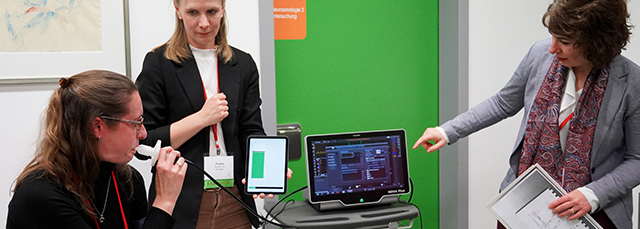
Dysautonomia course equips students for multidisciplinary care
Course offers practical tools for screening and therapeutic interventions, as well as allied approaches.
 Series offers vital education amidst challenges of ongoing war
Series offers vital education amidst challenges of ongoing war
Accessible dystonia series facilitates medical exchange and closes knowledge gaps in Ukraine.
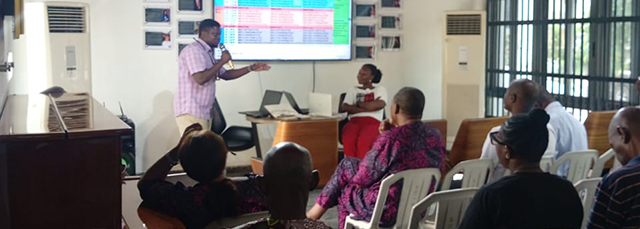 Patient organization draws wide awareness to Parkinson’s across Nigeria
Patient organization draws wide awareness to Parkinson’s across Nigeria
The Adewunmi Desalu Parkinson’s Foundation (ADPF) commemorated World Parkinson’s Awareness Month 2025 with a variety of public events and initiatives.
Global organizations partner on movement disorder-focused elearning day
The World Federation of Neurology and MDS brought together prominent leaders to discuss important topics in the field.
MDSICON 2025 highlights “phenomenology to technology”
Leaders in the field from India and internationally convened for an interactive program.
Expanding perspectives: Movement disorders well represented at AAN Annual Meeting
Sessions allowed thousands of neurologists to learn more about increasingly prevalent diseases.


|
|
Browse the Moving Along archives. |
Editorial Board

Katarzyna Smilowska, MD, PhD
Moving Along Editor (2023-2025)
Dr. Katarzyna Smilowska is a neurologist specializing in Movement Disorders at the 5th Regional Hospital in Sosnowiec, Poland. She has trained and conducted research at Radboud University Medical Center, Queen Square, and Christian-Albrechts University. She is actively engaged in international collaborations, serving on committees and task forces within MDS, as well as on committees and panels of the European Academy of Neurology.

Catalina Cerquera-Cleves, MD, MSc

Daniel G. Di Luca, MD

Shaimaa El-Jaafary, MD

Sergio Rodriguez-Quiroga, MD

Indu Subramanian, MD

Daniel Gams Massi, MD

Vikram Holla, MD, DM

Elie Matar, BSc(Adv), MD, PhD, FRACP

Vanessa Carvalho, MD









